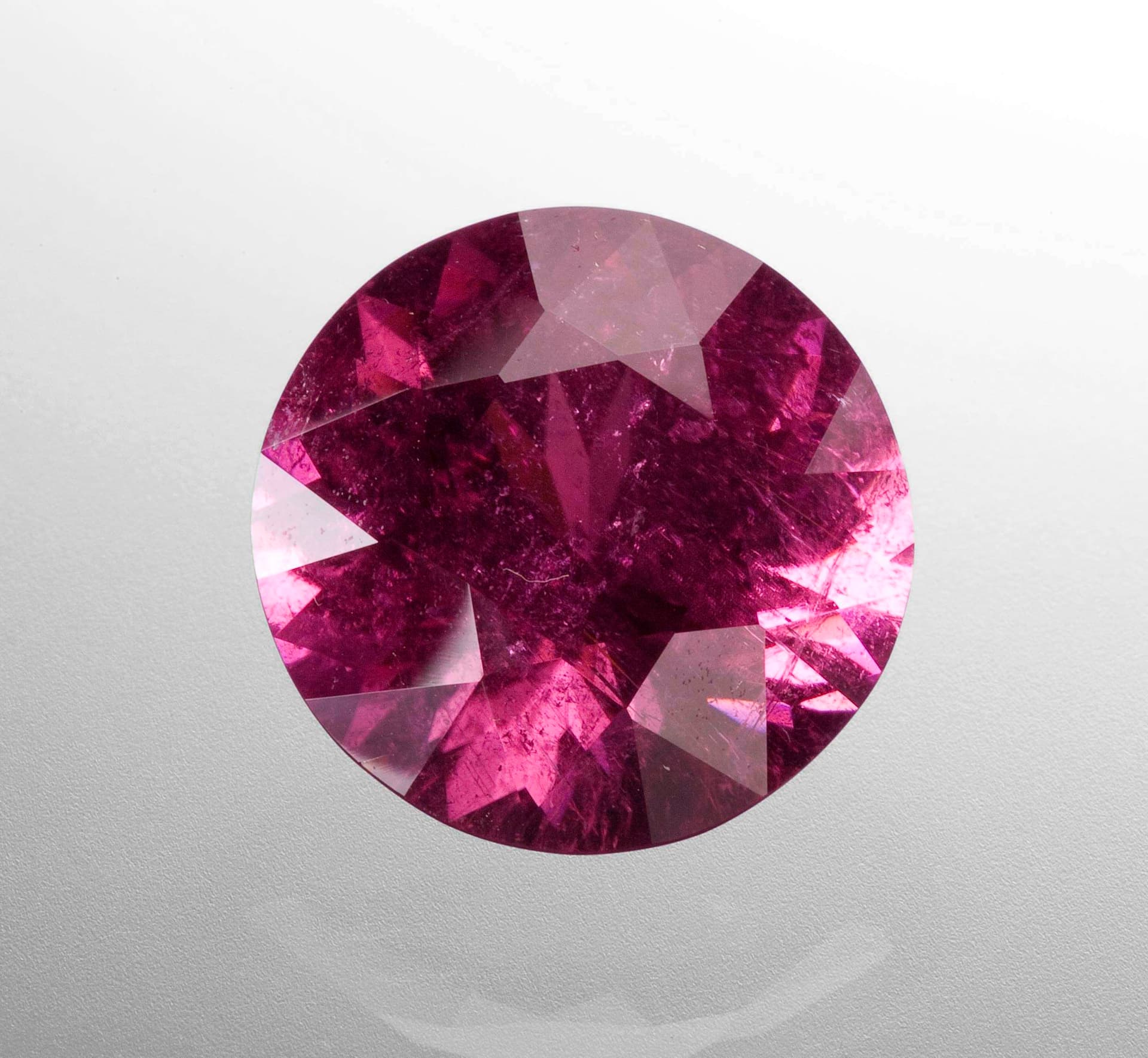Rubellite Tourmaline Value, Price, and Jewelry Information
Rubellites are tourmalines with reasonably saturated dark pink to red colors and medium to dark tones. They make excellent jewelry stones, and ruby-red colored specimens without orange or brown overtones are highly prized.
1 Minute Read
Rubellites are tourmalines with reasonably saturated dark pink to red colors and medium to dark tones. They make excellent jewelry stones, and ruby-red colored specimens without orange or brown overtones are highly prized.
Start an IGS Membership today
for full access to our price guide (updated monthly).Rubellite Value
Deep pinkish red to slightly purplish red are the most desirable colors. Brownish tones decrease a stone’s value considerably.
For more information on rubellite quality factors, consult our rubellite buying guide.
Comments
Trace amounts of manganese create rubellite's natural pink to red color. You may encounter light pink stones labelled as rubellites, but these are more properly considered pink tourmalines.
Rubellites have a hardness of 7 to 7.5 and no cleavage, so, whether faceted or cabbed, they make good stones for any type of jewelry. Lapidaries can also carve them.
Although the majority of Brazilian rubellites receive native cuts, custom cuts add value.
Identifying Characteristics
In terms of clarity, rubellites are typically Type III gems. Thus, they almost always contain inclusions. (Needle-like inclusions can also create cat's eye gems). Due to their scarcity and beauty, collectors and jewelry buyers value untreated, eye-clean or better rubellite gems most highly.
In recent years, African deposits have yielded cleaner rough. However, these African finds often show brown tinges and rarely approach the ruby-like red of gems from older Brazilian sources.
Enhancements
Irradiation, a now common gemstone treatment, can produce stable red tones in otherwise pale pink stones. Since this treatment is undetectable, assume all rubellites are treated, even though individual stones may not be.
Highly included rubellites sometimes receive fillings similar to those used on emerald, another highly included gemstone. Fourier transform infrared spectroscopy (FTIR) can detect this. Hot point testing can also detect this treatment. However, this is a destructive technique. It should only be used as a last resort.
Sources
Notable sites for mining rubellite gems include Afghanistan, Brazil, Madagascar, Myanmar, Nigeria, Russia, and the United States.
Care
Although rubellites are durable jewelry stones, avoid rough handling and use protective settings for heavily included stones. Inclusions as well as filler treatments may also make some rubellites sensitive to heat. Therefore, don't use mechanical cleaning processes, such as ultrasonic or steam systems. Instead, use a soft brush, mild detergent, and warm water for cleaning. Otherwise, rubellite requires no special care.
For more care recommendations, consult our gemstone jewelry cleaning guide.
Joel E. Arem, Ph.D., FGA
Dr. Joel E. Arem has more than 60 years of experience in the world of gems and minerals. After obtaining his Ph.D. in Mineralogy from Harvard University, he has published numerous books that are still among the most widely used references and guidebooks on crystals, gems and minerals in the world.
Co-founder and President of numerous organizations, Dr. Arem has enjoyed a lifelong career in mineralogy and gemology. He has been a Smithsonian scientist and Curator, a consultant to many well-known companies and institutions, and a prolific author and speaker. Although his main activities have been as a gem cutter and dealer, his focus has always been education.
Barbara Smigel, PhD. GG
Barbara Smigel is a GIA certified gemologist, facetor, jewelry designer, gem dealer, gemology instructor and creator of the well-regarded educational websites acstones.com and bwsmigel.info.
International Gem Society
Related Articles
Cutting Natural Rough Stones: The Breaks
Tourmaline Buying Guide
Emerald Cutting Advice For Green Tourmaline And Rubellite
Tiger’s Eye Value, Price, and Jewelry Information
Never Stop Learning
When you join the IGS community, you get trusted diamond & gemstone information when you need it.
Get Gemology Insights
Get started with the International Gem Society’s free guide to gemstone identification. Join our weekly newsletter & get a free copy of the Gem ID Checklist!
